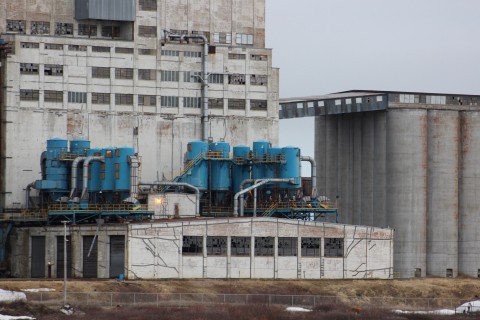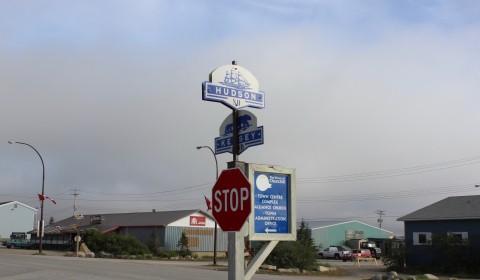
Prices for gasoline are on the rise in the town of Churchill, making accessibility an issue.
Churchill, Man., has been without train transportation since March 2017 due to flooding that damaged the railroad track. Both Churchill residents and visitors from the University of Saskatchewan arctic field school program are facing rising costs of transportation.
The main sources of transportation to and from the northern town were trains and air travel, but now only the latter is available. The railway washout has created several issues in the community itself, as the lack of transportation restricts the transportation of goods and mobility in and out of the town. Indeed, because Churchill is a remote area, employers often fly in their employees temporarily, rather than relocating employees and their families permanently.
Churchill is also a popular tourist destination for wildlife sightings of polar bears and beluga whales. However, tourism has declined since the railway washout, and tourism businesses have felt the impact of the rise in the price of gas, as these businesses rely on boats and vehicles.
Karlynn Dzik, a fifth-year animal bioscience student who lives in Churchill seasonally for work, explains that trains were suspended a week before she was scheduled to arrive, leaving her to find alternative transportation.
“I was only notified four days before I was to take the train that it was cancelled. I had to change my travel arrangements and book last-minute flights,” Dzik said, in an email to the Sheaf.
Dzik says that gasoline is a rising expense for residents, as it cannot be flown in by airlift. The effects of the railway washout extend beyond the Manitoba border as well, and Ryan Brook, associate professor in the College of Agriculture and Bioresources and program director of the arctic field school program, discusses how the increasing cost of gas and resources in Churchill has caused the program to adjust program prices for students.
“Any increase in costs, such as gasoline, definitely impacts this program, because students pay approximately 55 per cent of the total program cost,” Brook said, in an email to the Sheaf.

The total program costs were $50,000 per year, but because of increased gas prices, the program has had to compensate by raising program fees by $200 per student. Brook explains that the increase in the cost may lead to decreased student participation in the program.
“The big concern I have is that, as the cost to students increases, we start to lose participants who can’t afford it,” Brook said.
Beyond tourism, the railroad to Churchill was a delivery route for groceries. Now, due to the damage that occurred because of flooding, groceries need to be flown in by plane, an expensive alternative that has led to an increase in the cost of food items for residents. Dzik explains that the impact of rising food prices while she lived in Churchill did not interfere with her ability to access food; although, it may be a concern for others.
“Food access was certainly an issue with cost. As I was only feeding myself, the cost of living was high for me but I wouldn’t say my food security was impacted. As for other families in the community, I can’t really say, but I imagine, especially for families, it was a difficult time,” Dzik said.
On Nov. 14, the federal government filed a lawsuit for 18.8 million dollars against Omnitrax Inc., the Denver-based company that owns the railway, because the company claims that repairs are too expensive. Barring further developments, the residents of Churchill and the students of the arctic field school program will continue to pay the cost for the washed-out railway.
—
Lauren Klassen
Photos: Karlynn Dzik / Supplied
Leave a Reply